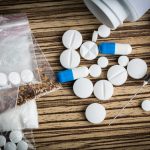Legal and Illegal Drugs That Cause Fainting

Drug-induced fainting refers to episodes of fainting or syncope that are triggered by the use of certain illicit drugs and medications. Fainting is a temporary loss of consciousness that is usually caused by a temporary decrease in blood flow to the brain. This decrease in blood flow can be due to a variety of factors, including a sudden drop in blood pressure or changes in heart rate.
The prevalence of drug-induced fainting can vary depending on the specific medication and individual susceptibility. Some drugs have a higher risk of causing fainting than others. For example, medications that affect blood pressure or heart rate are more likely to induce fainting as a side effect. However, it’s important to note that not everyone who takes these medications will experience fainting, and the overall occurrence of drug-induced fainting is relatively low.
The incidence of drug-induced fainting is typically reported as an adverse event in clinical trials and post-marketing surveillance. This information can be found in drug package inserts, medical literature, or databases that collect reports of adverse drug reactions. In this article, we shall be looking at legal and illegal drugs that cause fainting
List Of Illegal Drugs That Cause Fainting
Illegal drugs that are commonly associated with a higher risk of fainting or syncope include:
1. Heroin: Heroin is a highly addictive opioid drug that depresses the central nervous system, including the respiratory and cardiovascular systems. The effects of heroin can cause a drop in blood pressure and heart rate, potentially leading to fainting.
2. Cocaine: Cocaine is a stimulant drug that increases heart rate and blood pressure. However, it can also constrict blood vessels, leading to a decrease in blood flow to the brain and potentially causing fainting episodes.
3. Methamphetamine: Methamphetamine, commonly known as meth, is a potent stimulant that can increase blood pressure and heart rate. It can also cause vasoconstriction, which may result in a decrease in blood flow and fainting.
4. Ecstasy/MDMA: Ecstasy or MDMA is a synthetic psychoactive drug that has stimulant and hallucinogenic effects. It can cause an increase in heart rate, blood pressure, and body temperature. In some cases, these effects can lead to fainting or syncope.
5. Synthetic Cannabinoids: Synthetic cannabinoids, often referred to as “synthetic marijuana” or “spice,” are human-made chemicals that are designed to mimic the effects of THC (the active compound in marijuana). These substances can have unpredictable effects on blood pressure, heart rate, and blood flow, potentially resulting in fainting.
List of Legal Drugs That Cause Fainting
While legal drugs are generally regulated to ensure safety, some medications can still have side effects, including the potential to cause fainting in certain individuals. Here are five legal drugs that can have fainting listed as a possible side effect:
1. Blood Pressure Medications: Certain classes of antihypertensive drugs, such as alpha-blockers, beta-blockers, and vasodilators, may cause a drop in blood pressure, leading to fainting in some individuals.
2. Anti-Anxiety and Sedative Medications: Benzodiazepines and barbiturates, commonly prescribed for anxiety disorders or as sedatives, can cause drowsiness, lowered blood pressure, and risk of fainting.
3. Antidepressants: While not all antidepressants have this effect, some medications, particularly tricyclic antidepressants (TCAs), can impact blood pressure and heart rate, potentially leading to fainting episodes.
4. Antipsychotic Medications: Certain antipsychotic drugs, especially those with a strong blockage effect on specific neurotransmitters, can cause orthostatic hypotension (sudden drop in blood pressure upon standing) and increase the risk of fainting.
5. Opioid Pain Medications: Strong opioid analgesics, such as morphine, oxycodone, or fentanyl, can cause respiratory depression and lower blood pressure, which can potentially result in fainting.
It’s important to note that not everyone who takes these medications will experience fainting, and the occurrence of fainting as a side effect varies among individuals. Always consult with a healthcare professional if you have concerns about the side effects of any medication you are taking.
What to do in a drug-induced fainting situation
If you suspect drug-induced fainting or witness someone experiencing a fainting episode after taking medication, here are some steps to take:
1. Ensure Safety: The first priority is to ensure the safety of the individual. Check the surroundings for any potential hazards and clear the area if necessary.
2. Call for Help: If the person does not regain consciousness within a minute or two, or if there are any signs of injury or distress, call for emergency medical assistance immediately (in most countries, this is done by dialing the emergency services number, such as 911).
3. Positioning: If the person is unconscious but breathing, carefully lay them flat on their back. Elevate their legs slightly to promote blood flow to the brain. This can help alleviate symptoms and prevent further complications.
4. Monitor Vital Signs: Keep an eye on the person’s breathing and pulse. If their breathing stops or becomes irregular, be prepared to perform CPR (cardiopulmonary resuscitation) if you are trained to do so.
5. Stay with the Person: Stay with the person until medical help arrives. Monitor their condition and be prepared to provide any necessary information to the medical professionals.
6. Medical Evaluation: Once the person has regained consciousness or medical assistance has arrived, it’s important for them to seek a medical evaluation. They should inform the healthcare provider about the medication they took, the timing of the episode, and any other relevant details. This information will assist in determining the cause and appropriate management of the fainting episode.
Remember, the steps provided are general guidelines, and it’s essential to follow any specific instructions given by healthcare professionals or emergency responders.





